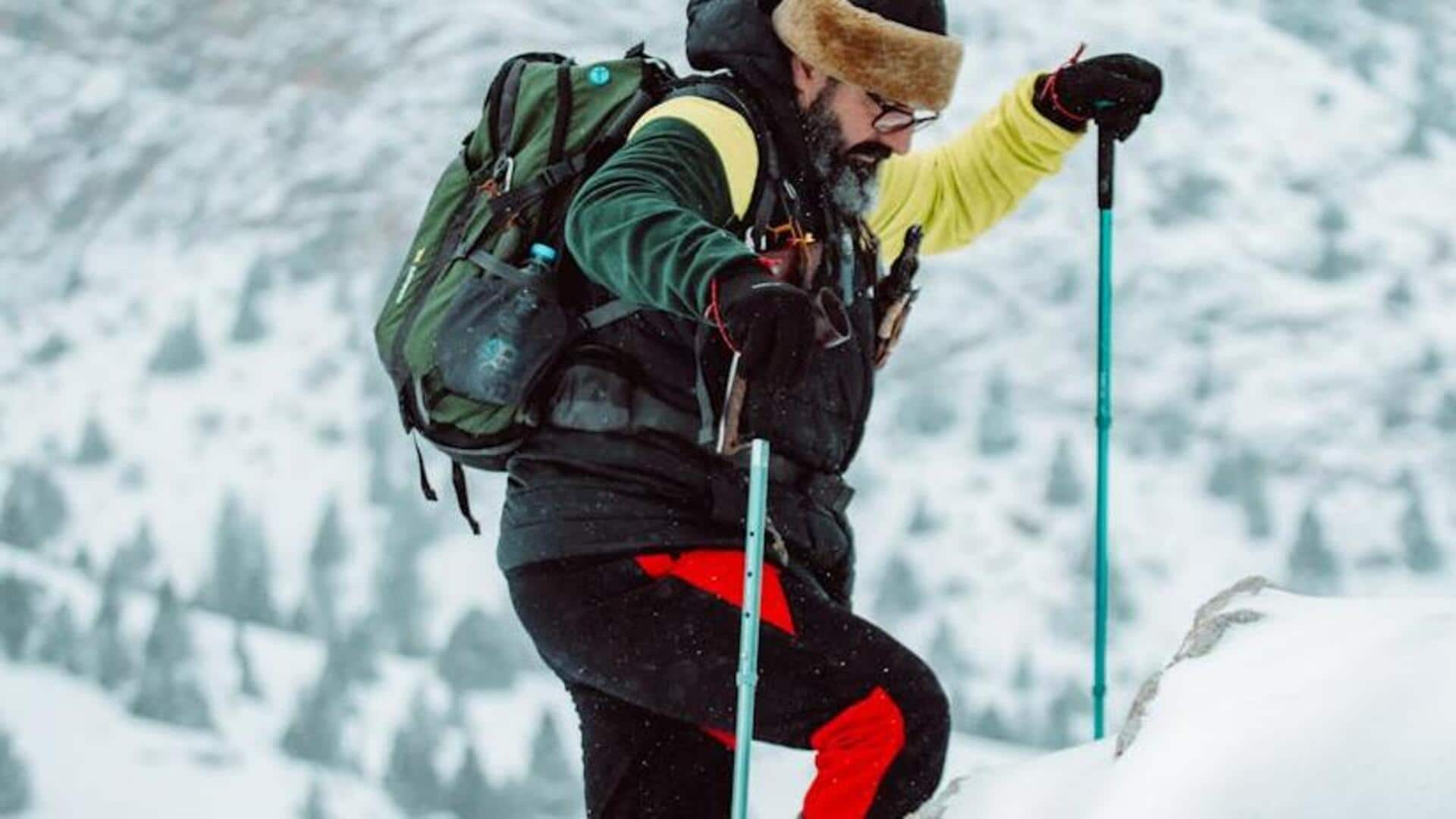
Cold climate hiking: Why it's good for you
What's the story
Hiking in the cold not only offers a unique experience but also comes with a host of health benefits, particularly in optimizing genetic expression. This article delves into how braving the chill of a winter hike positively impacts your body right down to your cells, providing insights that might even catch seasoned hikers off guard.
Brown fat
Boosts brown fat activation
Unlike regular white fat which is used to store energy, brown fat burns calories to produce heat, making it beneficial for weight management. It helps the body adjust to cold environments by generating warmth. Hiking in a cold climate activates brown fat, which boosts metabolism and helps you lose weight. Research indicates that individuals with higher amounts of brown fat exhibit improved blood sugar control and increased insulin sensitivity.
Heart health
Enhances cardiovascular health
Hiking in cold weather exposes your body to a natural cardiovascular workout. Your heart rate and blood circulation increase as your body works harder to maintain its core temperature. This strengthens your heart muscles and improves overall heart health. Regular cold climate hikers often have lower blood pressure and a reduced risk of coronary heart disease.
Mental boost
Improves mental well-being
The pairing of physical exertion and immersion in nature is a well-documented antidote to symptoms of stress, anxiety, and depression. Cold weather hiking amplifies this effect by triggering a more intense release of endorphins (aka "feel-good" hormones) as your body responds to the cold. This results in a heightened sense of well-being and mental clarity after your hike.
Immunity
Strengthens immune system
Frequent exposure to cold temperatures during hikes strengthens the immune system. The stress from cold exposure triggers the immune response. This results in a higher production of white blood cells, essential for combating infections and diseases. Hence, hikers tend to get sick less often with common illnesses like colds or the flu, proving the advantages of this activity.
Sleep enhancement
Promotes better sleep quality
The physical exertion coupled with natural light exposure aids in aligning your circadian rhythms, resulting in more restful sleep patterns among hikers. And, the cooling effect of lower temperatures at night promotes deeper sleep cycles by reducing your core body temperature, a key factor for transitioning into restorative sleep stages more effectively.